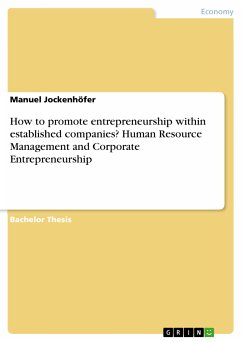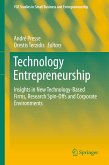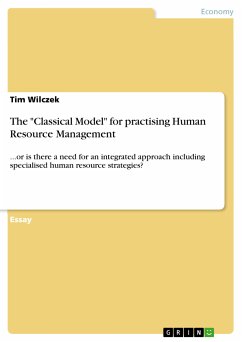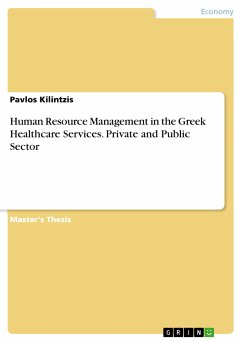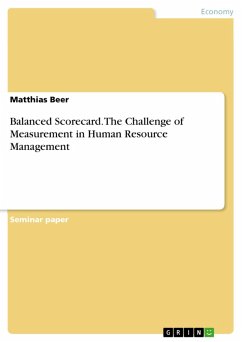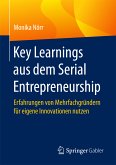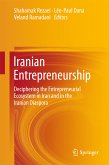Bachelor Thesis from the year 2012 in the subject Leadership and Human Resource Management - Miscellaneous, grade: 1,0, LMU Munich, language: English, abstract: Introduction There is a growing consensus that companies should promote entrepreneurship within their organizational boundaries. This way, established companies are in a position to preserve and reinforce the innovativeness and flexibility from which many young enterprises benefit. The business strategy pursued by organizations which intentionally engage in various entrepreneurial activities is referred to as a corporate entrepreneurship (CE) strategy. The CE strategy implies the continuous development of new products and technologies as well as the flexible adjustment of internal organizational structures and processes. Thus, the pursuance of a CE strategy generally helps those organizations acting in dynamic business environments to enhance their competitiveness and economic viability. Given that today’s business environments are increasingly characterized by “rapid technological evolution, glob- alization, and progressively sophisticated competitors” (Schmelter et al., 2010, p. 716), the CE strategy is recommendable for more and more companies. Nonetheless, although researchers paid increased attention to the field of CE over the last three decades, still little is known about how organizations can consciously stimulate and promote their entrepreneurial activities. Assuming that the activities conducted by organizations are substantially determined by their individual members, the more concrete question arises of how an organization can strengthen the entrepreneurial mindset and behavior of its employees. Therefore, the final aim of this thesis is to examine how human resource management (HRM) can effectively support the implementation of a CE strategy. In the course of this, the beneficial employee characteristics and behaviors for CE will be identified, the compatible HRM practices will be determined, and the mediating roles of both organizational culture and leadership between HRM and an effective realization of a CE strategy will be analyzed. The research question will be answered with the help of a theoretical approach and the results from expert interviews.

